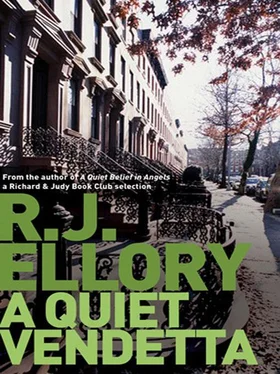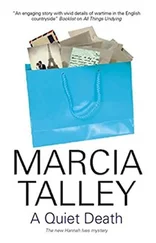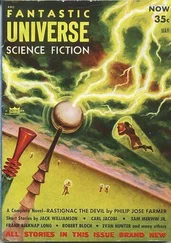On 28 October, after thirteen days during which the entire world dared not to blink, Khrushchev announced that all missile-launching sites on the island would be dismantled and returned to the USSR. On 2 November Kennedy lifted the Cuban blockade.
In December, the United States paid a fifty-three-million-dollar ransom and the Bay of Pigs invaders were freed.
I watched the events of those months unfold from a house in downtown Miami. I was twenty-five years old by the time the world exhaled once more, and though I had paid attention to these things it was as if they were merely moments of radio interference interrupting the soundtrack of my life.
And this was now my life. I had arrived here with no more mention than I deserved. In some small way I was myself an appendage, an addition to something so much bigger than myself, and though I was absorbed into the extant operation that existed in Miami, there was always the awareness that I was different. These people – people with names like Maurizio, Alberto, Giorgio and Federico, who all seemed to have secondary names like Jimmy the Aspirin (because he made Don Ceriano’s ‘headaches’ go away), Johnny the Limpet and Slapsie Maxie Rosenbloom – were part of a crew nicknamed the Alcatraz Swimming Team. They drank plenty, they laughed more, they spoke in broken Italian-American, and every other phrase seemed to be ‘ Chi se ne frega ’, which meant ‘Who gives a damn!’, and I believed they didn’t, and never had, and never would.
By the time I arrived it was March of 1962. January had seen the death of Lucky Luciano, a man whose name I heard quoted more times than perhaps any other. In some small way his death had played a part in Don Ceriano’s return to the United States, for there were ‘family matters’ to attend to that seemed pressing and urgent. His return was met with great enthusiasm, and those who were there to greet him as we arrived at a palatial three-story house in downtown Miami seemed to ask nothing of me. I was taken in without question, and on the two or three occasions Don Ceriano was asked about me he merely said, ‘This is my friend Ernesto. Ernesto has taken care of some things for me, some very important things, and his loyalty is beyond question.’ This seemed enough, for I was given a room in that house, a house where I would live with Don Ceriano and members of his family for a little more than six years. Don Ceriano let me keep the car, the Mercury Cruiser that had once belonged to Pietro Silvino, and money was available whenever I needed it. I felt at once part of this family, but yet so much an outsider. I did not feel afraid, only perhaps a little overawed by the people that I met, the seeming magnitude of their personalities, and I tried my best to be a part of whatever I had been inducted into. Once again it was merely a matter of self-preservation and survival. I had left Cuba, I had come to America; I possessed nothing but those things afforded me by Don Ceriano and his people. I had made a bed perhaps, and it was not difficult to lie in it. The world went about its business and I went with it.
The ‘important things’ I had taken care of were simple enough. Don Ceriano would give me a name, sometimes show me a photograph, and I would be despatched. I would not return until the man that bore the name was dead, no matter how long it took. Between the death of Pietro Silvino and my departure from Cuba I had taken care of eleven ‘important things’. Each of them was unique, each of them special, the last one of which was my father.
Killing your own father is a truly spiritual experience: such a thing cannot exclude killing a little of yourself, yet at the same time it is an exorcism. There are some I have spoken with who talk of carrying the faces of the dead, as if some small part of their spirit enters you as they die, and from that point forward they will always be there. If I close my eyes and think hard enough I can remember all their faces. Perhaps, just perhaps, I can look in the mirror long enough and see their reflections in my own eyes. Imagination plays a part I am sure, but I believe there is some truth in what I have been told. We carry them all, but I – at least – carry the image of my father the most.
When he died he was all of forty-six years old. I had arranged a job for him at one of the smaller nightclubs in Old Havana, a club owned by Don Ceriano’s brother-in-law, a wild-eyed and aggressive gambler called Enzio Scribani. Scribani had married Don Ceriano’s youngest sister three or four years before, and though his promiscuity and perverse sexual tastes were legend, there was something about the way in which such things were handled that denied the possibility that he would be anything but family. Later, six or seven years after I had left Havana, Don Ceriano’s sister, Lucia, a beautiful innocent-looking girl, killed her own husband by driving a pair of pinking shears through his right eye. She had then taken her own life.
My father, his reputation as the Havana Hurricane still to some degree intact, was employed as a doorman at the Starboard Club, a relatively minor concern in the grand scheme of things. Here the walk-on players and bit-piece actors in the grander theater of Havana’s Mafia operations came to flirt with the hostesses, to gamble hundreds instead of thousands of dollars, to sometimes wander through the rear curtains where worn-out Cuban housewives would dance and take their clothes off for ten or fifteen dollars a time. It was a shabby place in reality, and though Enzio Scribani was the owner and proprietor of the establishment he seemed to make it his business to be there as infrequently as possible.
My father did his job. He turfed out the drunken Cubans; he protected the dancers from their irate brothers and lovers and husbands; he escorted the money couriers from the club to the bank; he made little noise, he did not complain, he took his dollars at the end of each week and he drank them away before Monday rolled around again. With the money I earned from my Havana work with Don Ceriano I had rented a five-room apartment off Bernaza near the Old Wall Ruins. Here, my father had a room where he would sleep off his drunk until it was time to wake and return to work. I saw little of him, and with this arrangement I was satisfied. He spoke little, and when he did there was always an underlying apologetic tone, and as the months drew on I became less and less interested in what he had to say, and more intent that at some point soon he would cease to be my responsibility. I did not hate him. Hate was too strong an emotion for someone towards whom I felt nothing. Less than nothing. I often imagined that, in attempting to eject an undesirable from the Starboard, he would embroil himself in a fight that would get him shot or stabbed or beaten to death. But there was no such event. It seemed that my father, in relinquishing his arrogance and conceit, had also relinquished his right to be involved in anything of moment at all.
In the latter part of August 1961, a few days after another engagement had been organized for myself and an adversary of Don Ceriano’s, after another small matter had been perfunctorily despatched, I received a visit at my apartment from Giorgio Vaccorini. To me he was known as Max or Maxie, after Slapsie Maxie Rosenbloom the boxer. The nickname had been earned as a result of an incident outside the Hotel Nacional when a parking attendant had tried to take Giorgio’s keys from him in order to park and valet the car. Giorgio, drunk and incoherent, had believed he was being robbed, and he turned and let fly with a roundhouse that broke the kid’s neck. One punch and the teenager was dead. The matter was closed within half an hour with the delivery of ten thousand US dollars to the home of the Cuban National Chief of Police. So Maxie came to see me late afternoon. He looked serious, a little tense, and he asked me to sit down as he had some news for me.
Читать дальше







![Quiet Billie - Don't mistake the enemy [СИ]](/books/421973/quiet-billie-don-t-mistake-the-enemy-si-thumb.webp)




